A glimpse into Quebec’s responsible wine industry.
Mid-September calls for grape harvests - the time when all the winemakers in Quebec stroll through their verdant vineyards, getting ready and gearing up to press the grapes of yet another season.
Having a vineyard in Quebec means making the most of the shorter, typically less sunny season that give regional wines a brighter acidity (when compared to European grapes). Every year brings new challenges, but despite the high winds, torrential rains, hail, heat waves, and pests comes a lineup of wines unique to Quebec’s terroir and the season’s specific crop.
Naturally, we sent our team of wine connoisseurs to wander our partners’ stunning fields out in Montérégie and Estrie to get a taste of what’s coming. Keep scrolling to learn how three of our sustainable winemakers make your fave bottles.
Vignoble du Domaine St-Jacques, Saint-Jacques-le-Mineur
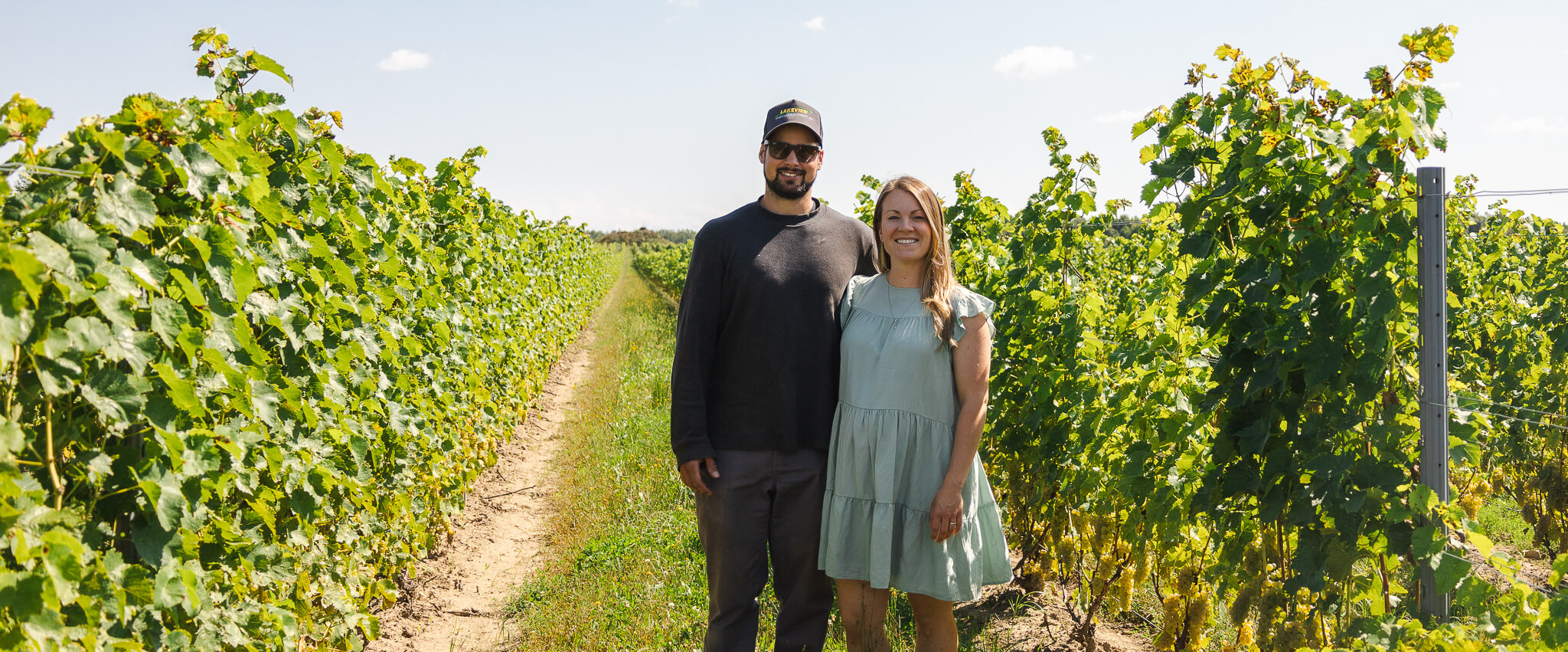
No goal is too far-fetched for the Domaine St-Jacques team, who run an impressive production line and manage to do it sustainably. Founder Yvan Quirion spent most of his time in the fields until his daughter, Sarah, and her partner, Gabriel, took over the barrels. With an entirely organic lineup of 2021 Cuvées, we’re blown away by their meticulous process.
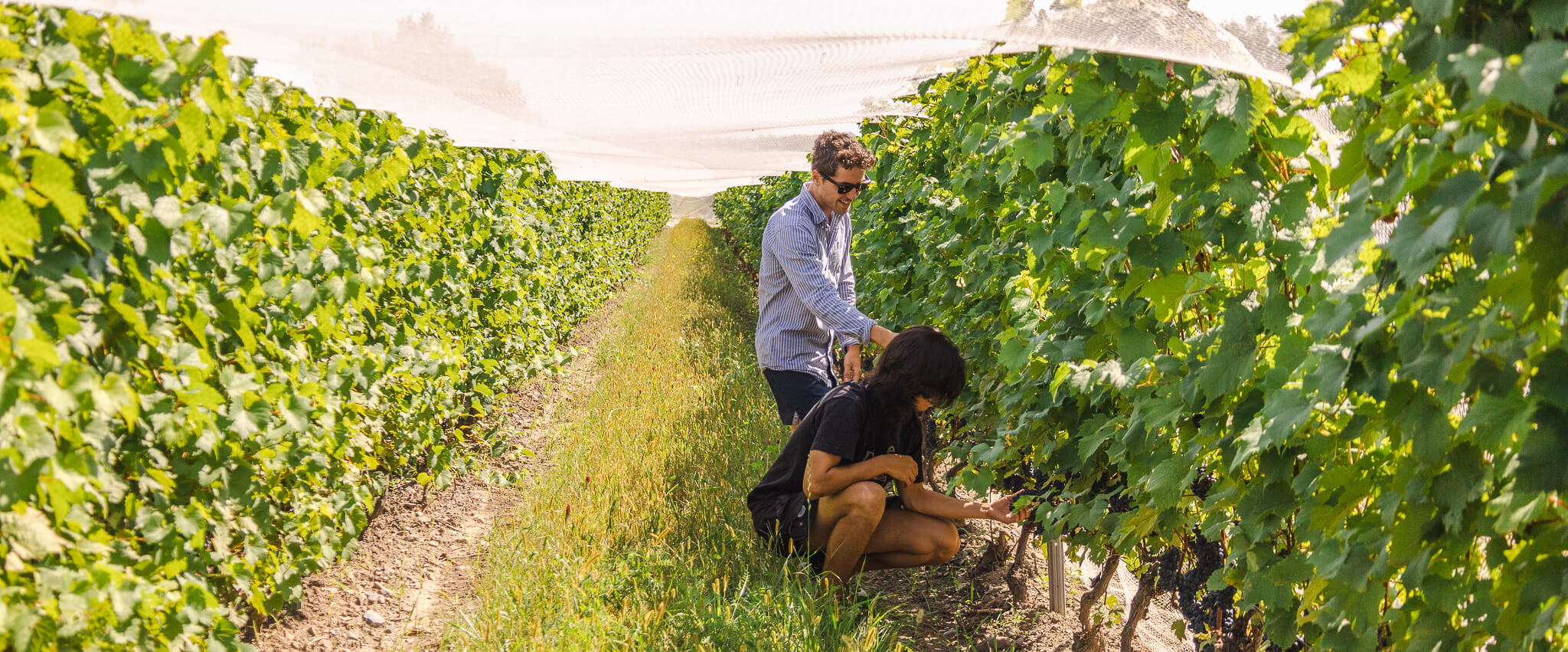
Their Lucie Kuhlmann grapes are by far the sweetest our team has tasted. Nets are installed above these dark-purple grapes to prevent birds from indulging in their sweet tooth.
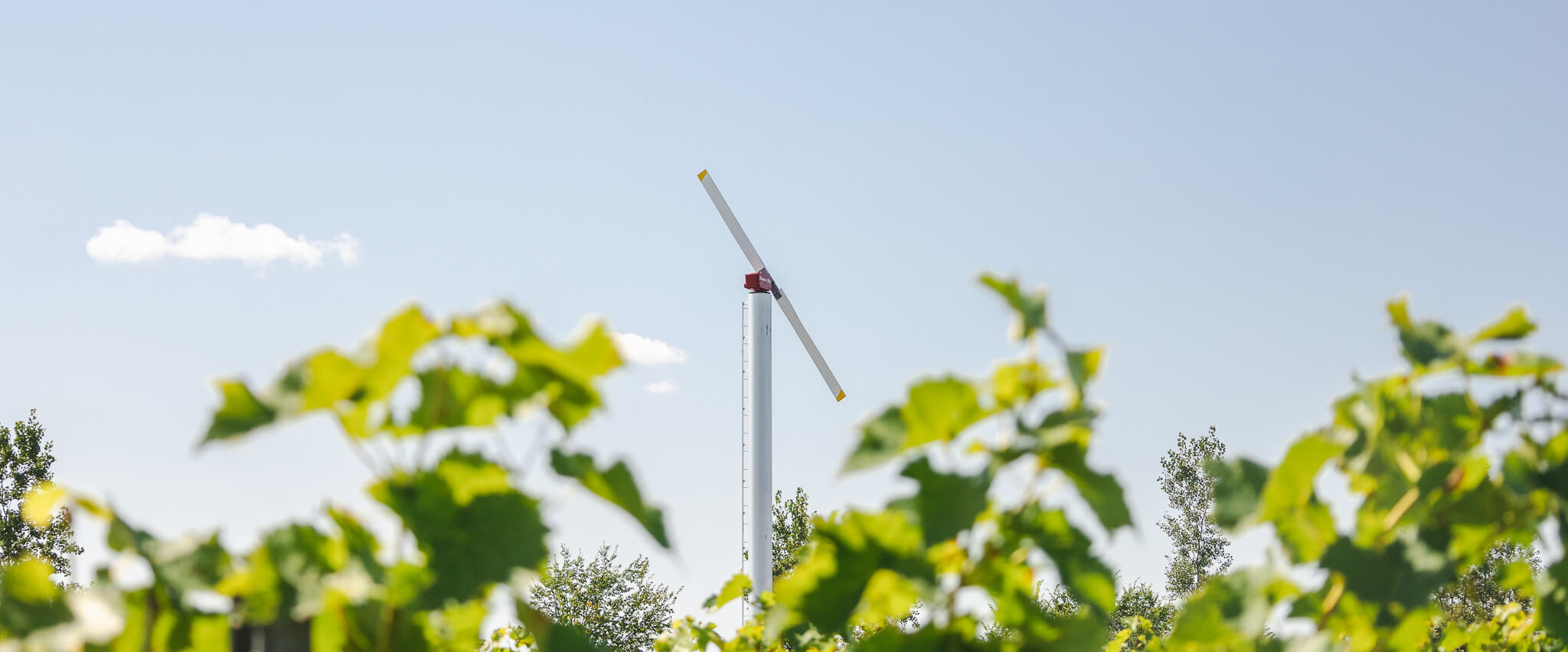
Each year brings its own array of complicated weather conditions, spurring the team’s creativity. Although they’re anticipating a smaller (but more exclusive) harvest, they were able to limit the damage of the spring frost with the help of wind machines (pictured above). They push the warmer air toward the vines on the ground and, despite a few losses, the team is delighted by their investment’s success.
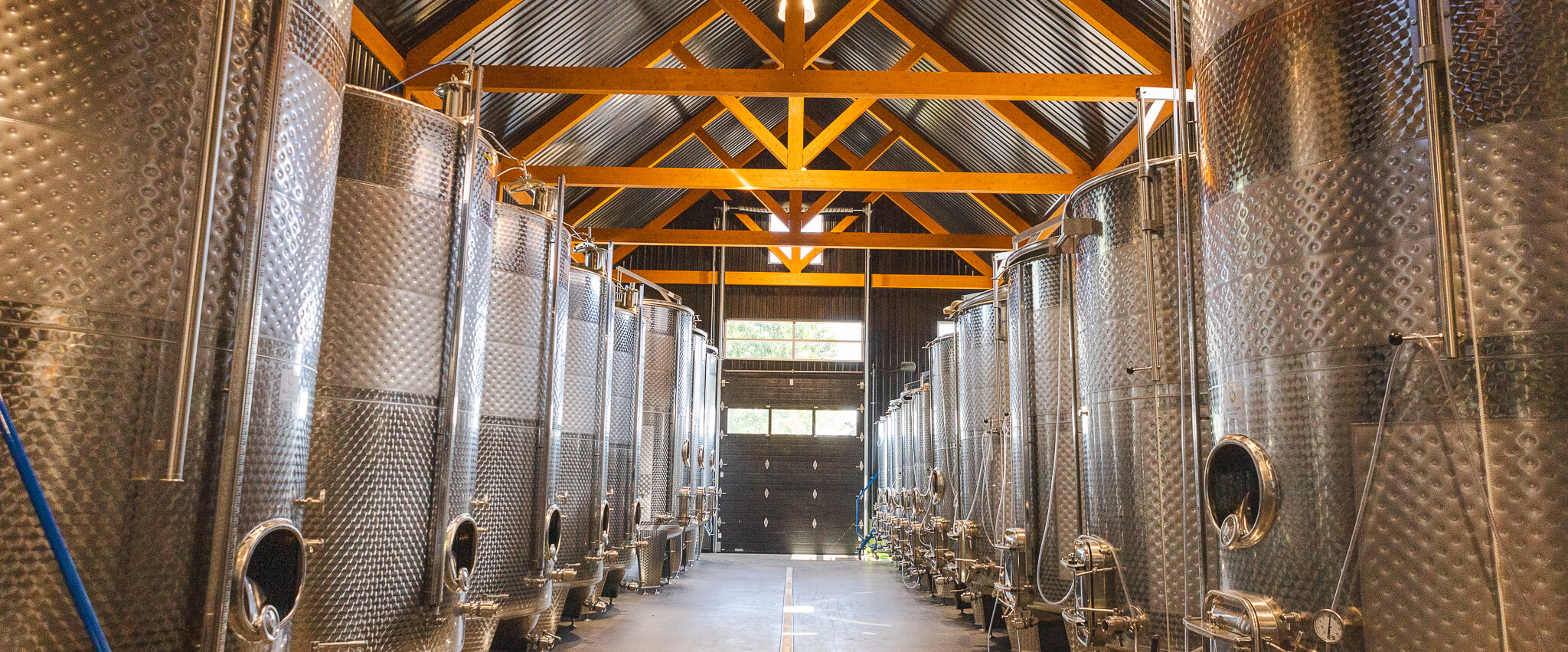
Domaine St-Jacques is our only partner with an automatic bottling line. They used to work with a third party to bottle their wines but invested in an all-in-one assembly line that can churn out 1000 bottles per hour - all sterilized, filled to the brim, encapsulated, and labelled in one shot.
Le Mas des Patriotes, Saint-Jean-sur-Richelieu
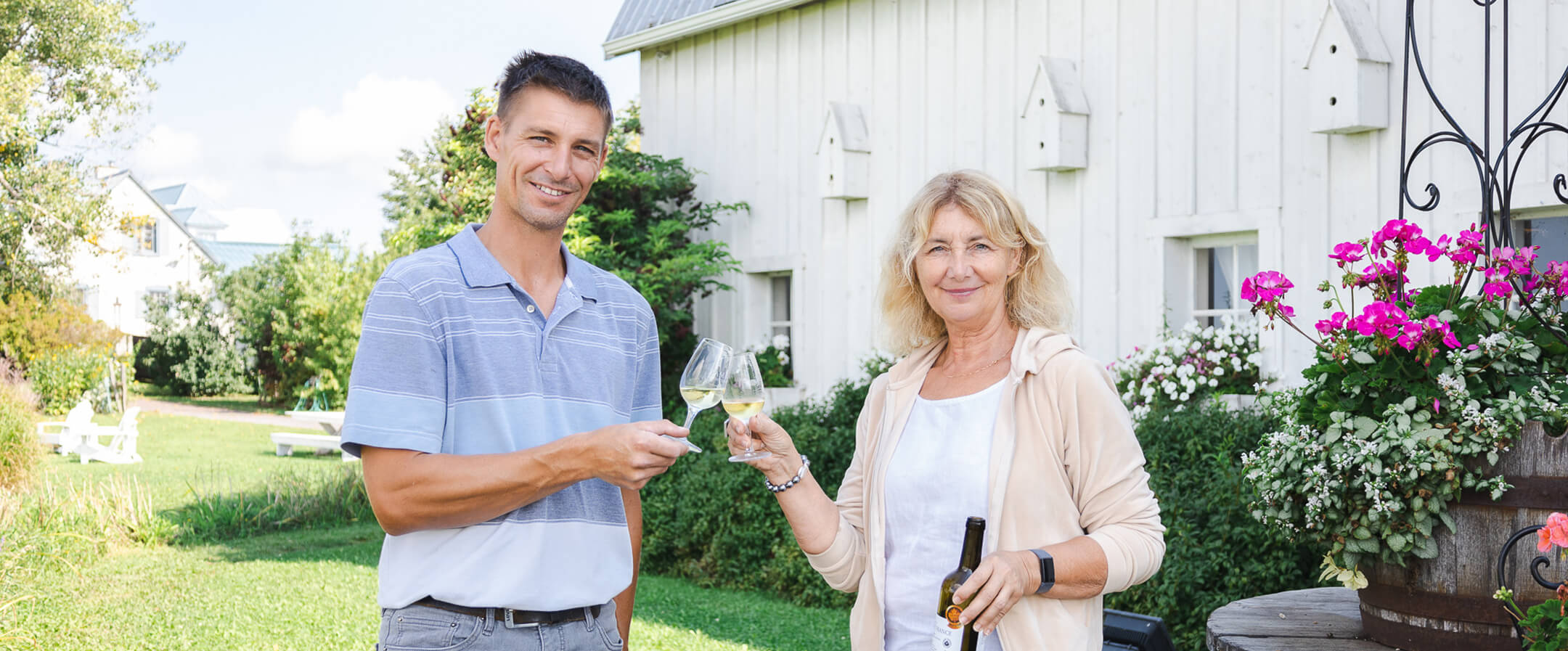
After receiving their organic certification, France and Claude from Le Mas des Patriotes hired Vincent as their vineyard and cellar manager. Originally from Bordeaux (yes, that Bordeaux), Vincent (pictured above) brings his wealth of knowledge to the vineyard and has his eye on the prized Demeter certification (holistic, regenerative, and sensitive agriculture).
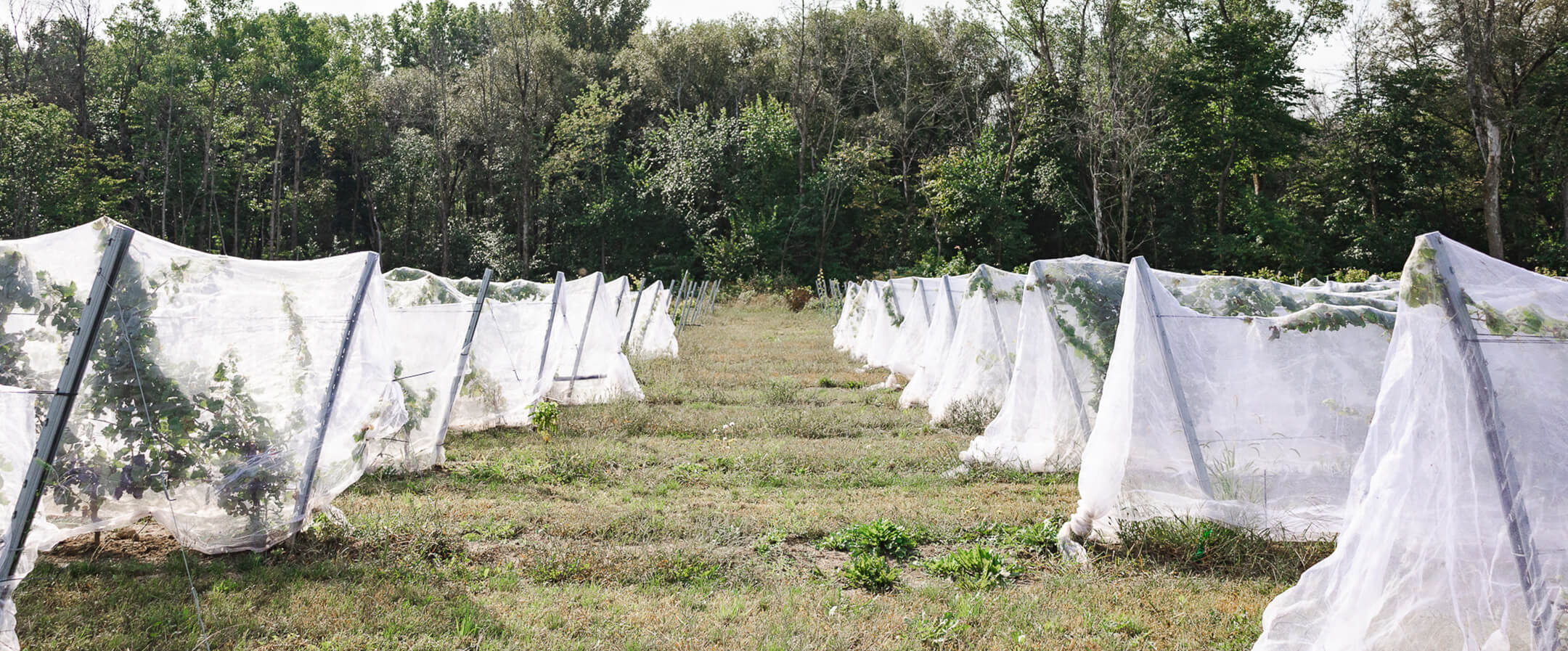
When their fruits are almost ripe, nets are installed to protect them from flea beetles and other pests. Unfortunately, they’re not tough enough to stop pesky raccoons from clawing through.
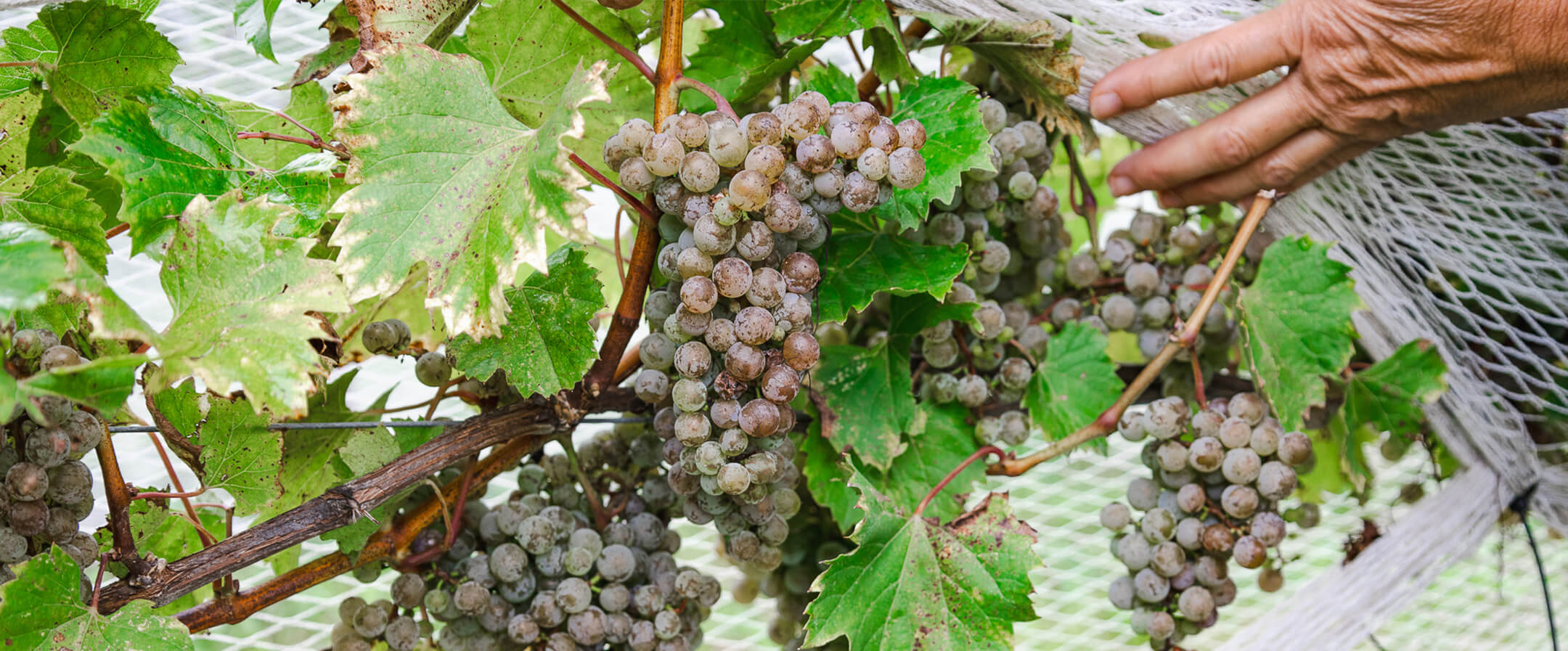
As the only vineyard in Quebec that exclusively uses vegan ingredients, they know how to stand out. And rather than taking the easy route with common hybrid grape varieties (more resistant to cold climates), they’re currently turning to vinifera grapes, classic European vines, to suss out their potential.
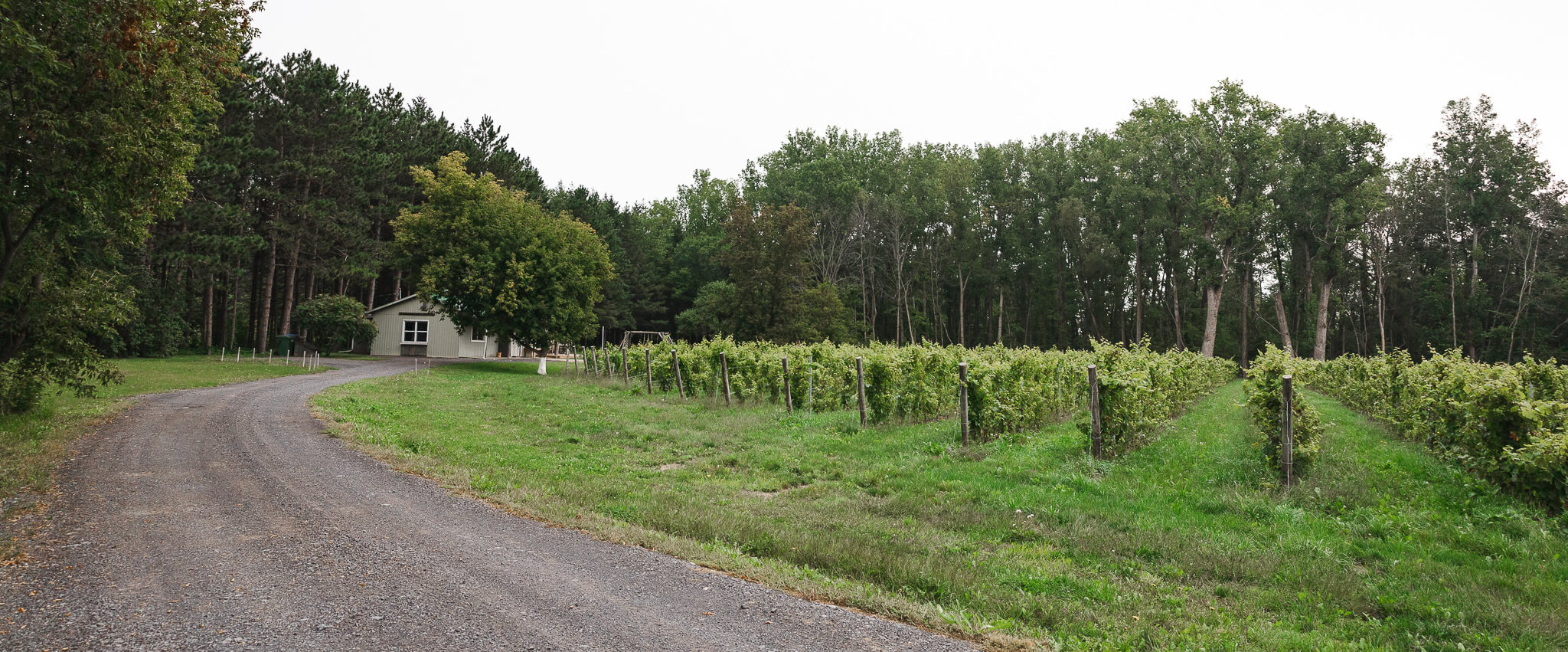
With six hectares of vines and a new fermenting extension on the way, it’s just the beginning of this trio’s journey. Once their grapes are harvested, they’ll be the first in Quebec to produce organic Chenin blanc (pictured above), a variety we can’t wait to add to our lineup.
Maison Agricole Joy Hill, Frelighsburg
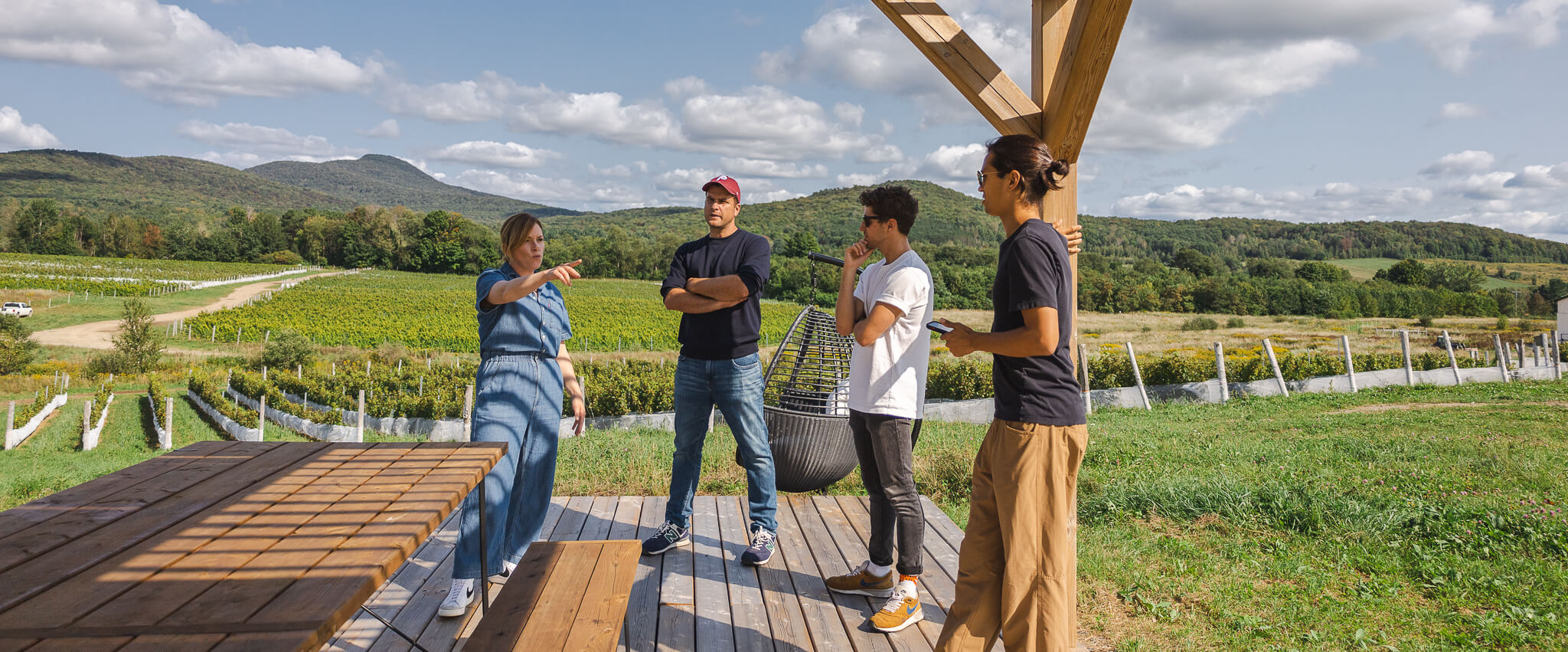
Located in Quebec’s apple heartland, Justine and Julien (who you may know from Fleuri, the organic cidery) have decided to take a leap into winemaking. The two self-titled winemaking newbies recently purchased a 7.5-hectare orchard dedicated to grapes (that’s 37,000 vines!) - talk about being passionate.
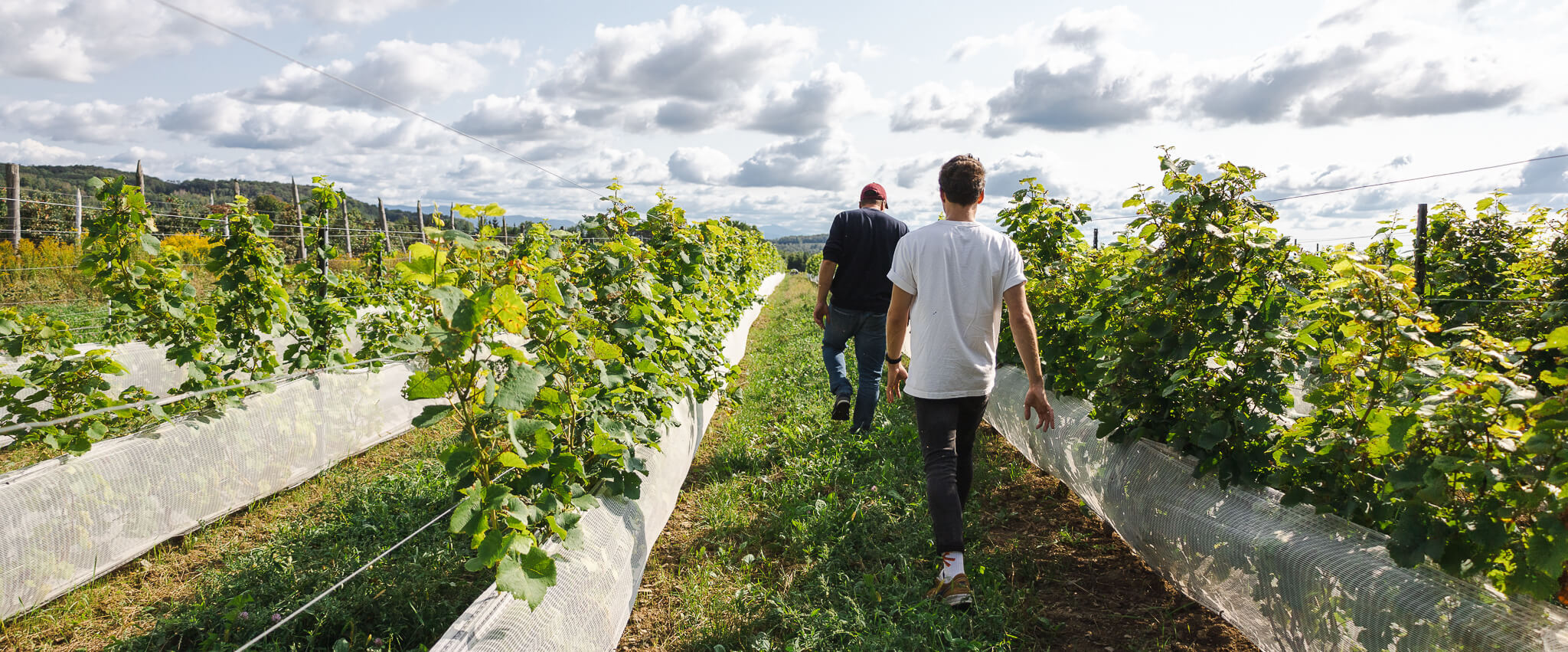
Rain and humidity have marked their fifth year tending to their vines marred by a white powdery disease. Going the responsible route, they plan on reusing local whey, a by-product of cheese production, and a combo of citrus extracts and essential oils to minimize the growth of microscopic fungi that cause mildew.
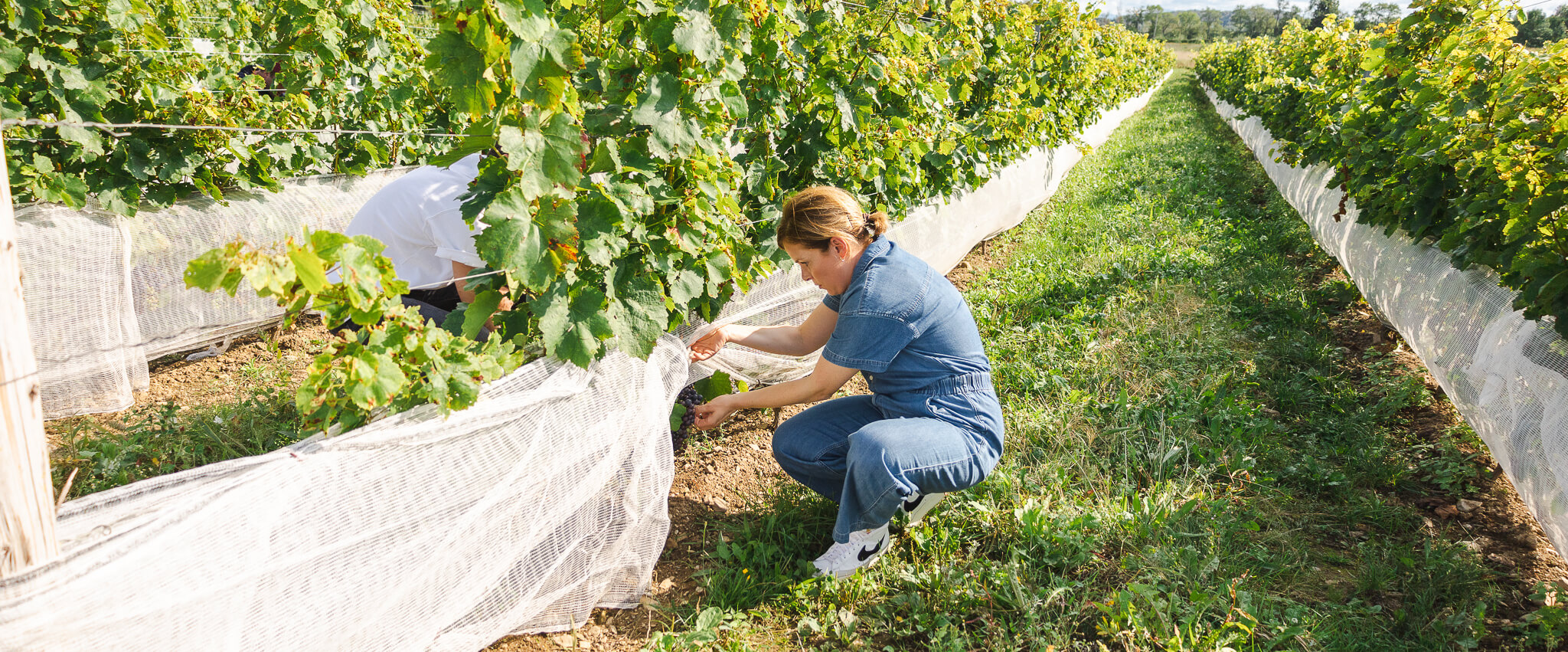
At Joy Hill, everything’s fermented using wild yeasts with no added sulfites. Sulfites are usually added to wines to prevent oxidation and bacterial growth, but Quebec’s soil is conducive to slightly more acidic wine, and (thankfully) a little acid goes a long way allowing Joy Hill to steer clear of the additive.
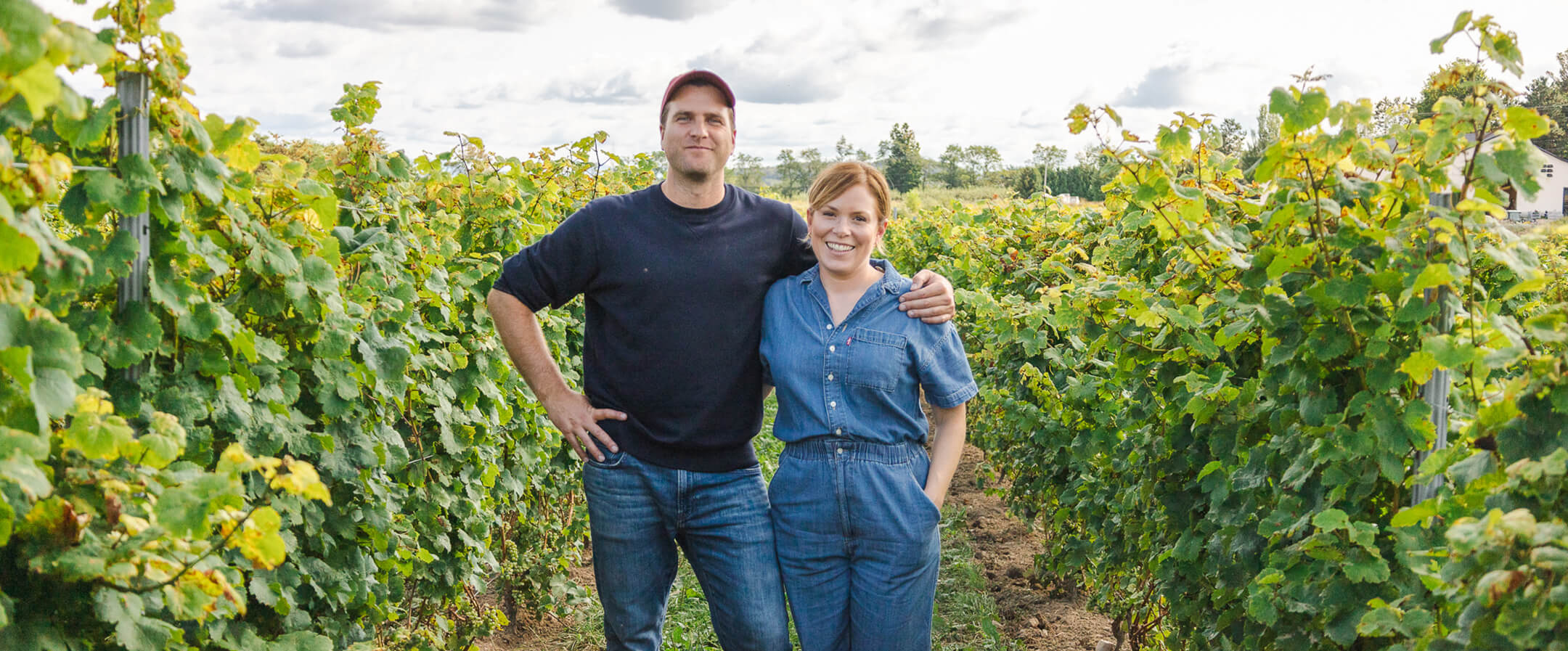
Justine and Julien, two of the industry’s brightest newcomers, thrive because they don’t hesitate to break away from tried and true methods. Inspired by Austrian wines, the pair is experimenting with grape varieties they adore and aren’t found anywhere else in Quebec (grüner veltliner and blaufränkisch) - and we’re eagerly awaiting our first sip of the results.
